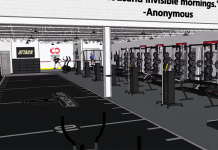Over the past few years, we’ve heard many times that the uncertainty and stress prevalent in today’s workforce is now “The New Normal.” As we creep out of the economic recession, our priorities have changed in the ways we work, live, and look at life in general.
This concept of a “New Normal” came into focus for me this past week. At the University of Michigan campus in Dearborn, I sat in on a student writers’ award ceremony. Students were given awards for exemplary writing in creative, business, and scholarly categories. As I listened to these young Millennials read passages from their works, some common themes and tones began to emerge — fear, anxiety, and hope.
As I listened more deeply, I heard the strains of a generation that has had to struggle with growing up in a post-9/11 world while entering the workforce on the heels of the worst economic collapse in decades. Through their own poetry and prose, these students reflected on the unsettled world in which we live and work. This world is their “New Normal.”
What I picked up was a real sense of uncertainty and trepidation about what the future brings for these young adults. Conversely, I detected a strong sense of hope and a willingness to foster change for the better.
As hiring managers look to recruit and promote these upcoming professionals, it will be critical for them to understand the world from which these Millennials come. We are already seeing disconnects in recruiting and hiring from this generation.
In a Devry University study from last year, researchers surveyed 500 adults between 21 and 31 years of age and 523 hiring managers who interact with Millennials at work. Here is what they discovered.
Thirty percent of Millennials stated that doing meaningful work is the most important measure of career success, and 27 percent ranked high pay as the No. 1 factor.
By comparison, half of hiring managers surveyed believe high pay drives Millennials’ career decisions and job performance.
Other key findings include:
•Seventy-eight percent of Millennials speculate they will have five or fewer jobs over the course of their career.
•Sixty-five percent of Millennials and 56 percent of hiring managers consider education to be among the three most important ways to advance their careers.
•Fifty-four percent of Millennials and 48 percent of hiring managers say computer skills and comfort with digital technology – such as using social media and learning about new technology – is among the top three career skills.
•Twenty-one percent of hiring managers rank digital comfort as the Millennial generation’s most valuable professional skill.
For hiring managers, this data suggests they will need to have an open mind about young adults’ expectations and goals within the workplace. Recruiters will need to gain a better understanding that what was once perceived as common career goals and aspirations do not hold true for Millennials.
This is an emerging generation who hesitantly but proudly march under the flag of the “New Normal.”












